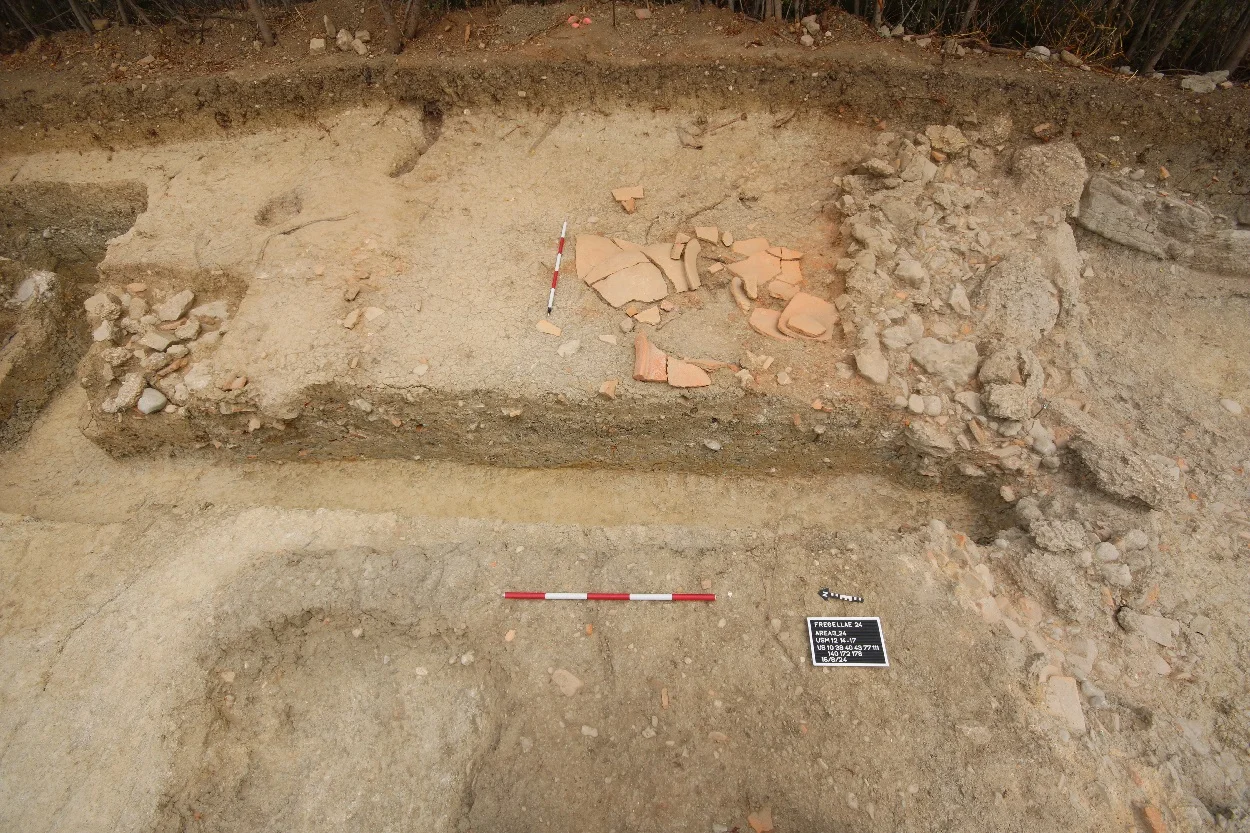Archaeologists have excavated the remains of Fregellae, an ancient city in central Italy that revolted against the Roman Republic.
Fregellae was founded during the 4th century BC near the present-day commune of Arce in the province of Frosinone. Due to the strategic location of the city, the Romans established a colony in 328 BC as a bulwark against Samnite incursions.
In 125 BC, the inhabitants of Fregellae revolted against Rome, demanding equal standing as Roman citizens. In response, Rome dispatched a force led by praetor Lucius Opimius, who swiftly suppressed the uprising and razed the city to the ground.
Archaeologists from the Leibniz-Zentrum für Archäologie (LEIZA) and the University of Trier have excavated the remains of an agricultural villa which belonged to the local elite within the extent of Fregellae.

Based on archaeological evidence, the villa was constructed around AD 45 and produced wine, fruit and grain in a dedicated production complex.
Prof Dr Dominik Maschek, project manager at LEIZA, said: “The wine was probably not only produced for the local market. It is quite possible that it was traded within Mediterranean exchange networks as far as Spain and France. The cultivation of grain and fruit, on the other hand, was certainly intended for the local market.”
Excavations also revealed traces of the encampment used by the Roman forces that destroyed the city. The camp covered an area of 90 x 143 metres and was surrounded by a defensive rampart and ditch.
Archaeologists suggest that the destruction of Fregellae dealt a severe blow to the region’s economy, leaving the area uninhabited for more than 170 years until the site was reused as a rubbish dump in AD 50.
Header Image Credit : Dominik Maschek
Sources : Leibniz-Zentrum für Archäologie (LEIZA)
This content was originally published on www.heritagedaily.com – © 2023 –

